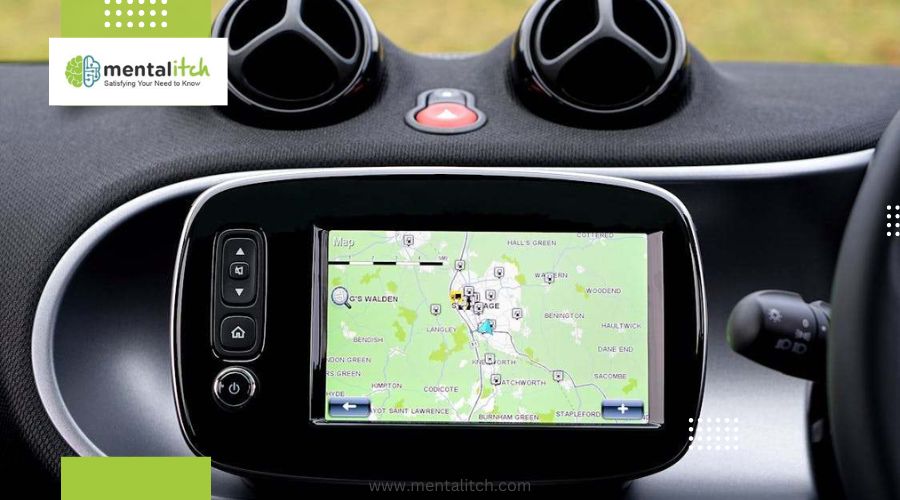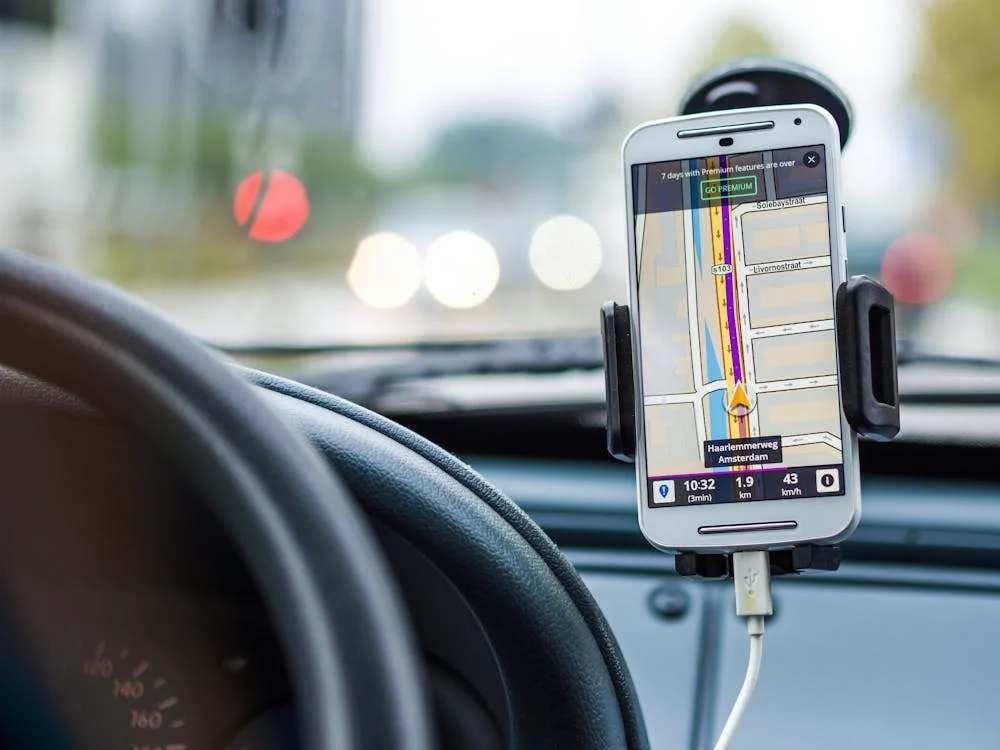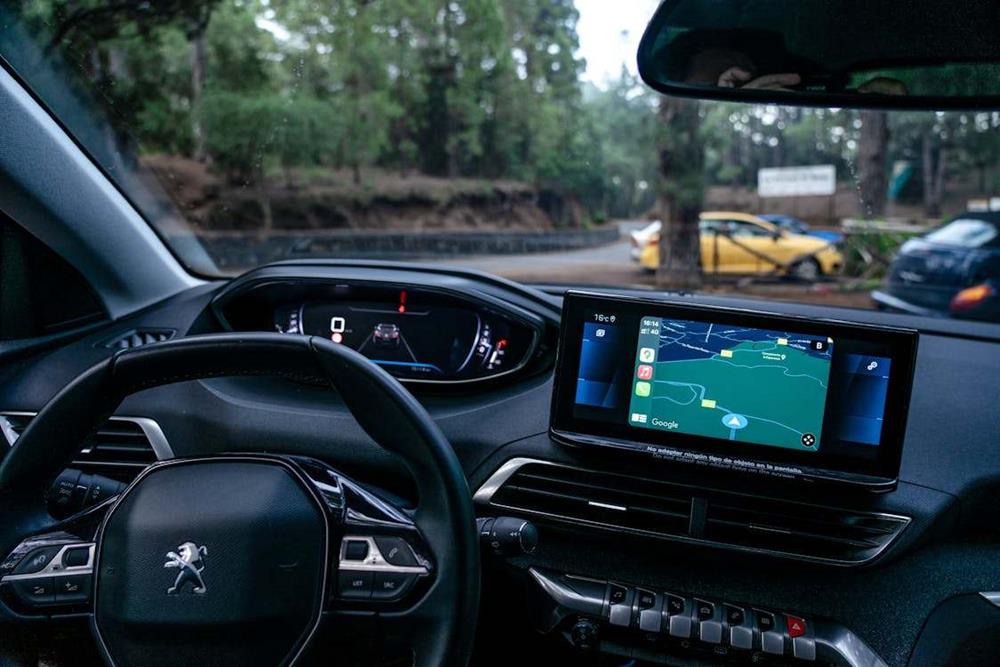GPS is one of the most wonderful miracles of modern society, and without it, we would probably still be walking around with maps, not to mention getting lost all the time. The general usage of GPS includes many benefits that any individual can take advantage of. It’s evolved to a level that allows it to track different properties like vehicle size, speed, and direction. Personal GPS used in regular cars happens to operate differently than the one used by trucks, and this can make a world of difference. Many fleet truck companies are becoming aware of this, and they’re making sure they incorporate truck GPS instead of personal GPS in their vehicles. We’ll be briefly explaining the difference between the two to help you pick the right GPS.
What is a Car GPS?
A car GPS (Global Positioning System) is a device that has become an essential tool for drivers around the world. Using a network of satellites orbiting the Earth, a car GPS system provides real-time location information, helping drivers navigate from one place to another with ease. Gone are the days of cumbersome paper maps and asking for directions; with a GPS, drivers can find the best routes, avoid traffic jams, and discover shortcuts, all with a few taps on a screen.
Introduced to the public in the late 20th century, GPS technology has evolved rapidly. Today’s car GPS devices do much more than just offer navigation; they come packed with features like live traffic updates, speed limit alerts, and even integration with smartphones for hands-free calling and music streaming. Some models also include safety features, such as lane departure warnings and collision alerts.
What is a Truck GPS?
A truck GPS is a specialized navigation device tailored to meet the unique needs of long-haul and commercial truck drivers. Unlike standard car GPS systems, truck GPS units take into account the specific challenges and requirements of navigating large vehicles. These devices provide routes that are suitable for trucks, avoiding roads with weight limits, low bridges, and other potential obstacles that could impede a truck’s journey.
Moreover, truck GPS systems often come equipped with features designed to assist professional drivers in their daily routines. This includes tracking hours of service to ensure compliance with driving regulations, locating truck stops, rest areas, and fuel stations that can accommodate large vehicles, and providing weather updates and traffic conditions in real-time.
The Differences Between a Car GPS and a Truck GPS
While a car GPS and a truck GPS serve the fundamental purpose of guiding drivers to their destinations, there are key differences tailored to the specific needs of each vehicle’s driver. Understanding these distinctions can help you choose the right GPS for your driving needs, whether you’re maneuvering through city streets or across interstate highways.
Special Routes
The main difference that separates a car GPS from a truck GPS is the ability to determine whether a route is suitable or not. While the default map provided by a normal GPS is the same in principle, the whole difference lies in the ability to discern extra data from the map, which a truck GPS does. Thousands of unknown roads can be legally restrictive for a truck to drive in, and the best way to know this is to use the best truck GPS specifically designed to guide you through the right roads. This should keep you safe from both legal repercussions and bridge-related accidents.
Specific Information
Truck tolls are notorious for their ability to stack up to an unexpected value. A normal car’s GPS doesn’t calculate tolls and their locations, which is a very important matter for the driver of the truck. A truck’s GPS can calculate the tolls and their locations once it identifies the route input from the driver. Tolls aren’t the only thing a truck GPS can calculate, as it can also identify critical information like whether a bridge or an overpass would be causing a problem or not. Some brands come with features that allow you to input the exact dimensions of your truck, and then they lead you to the safest route with no short overpasses or bridges on the way.
The use of a truck GPS system is highly important for the prevention of truck accidents. By utilizing truck-specific features, incorporating relevant data, and offering real-time traffic updates, these devices empower truck drivers to drive safely and efficiently and avoid truck crashes at all costs.
Fleet Management
A truck GPS is often equipped with an electronic log that can keep track of hours in motion, such as when the vehicle stops, mileage, and breaks. This can be very important for fleets as it’s possible to separate one driver’s data from another by using different accounts. A truck GPS equipped with the right features can help fleets become aware of all the details of many trucks at the same time. This can improve customer service as delivery time should be quite accurate, not to mention the ability to monitor and assess a driver’s behavior.
A truck GPS is a durable marvel of technology that is helping truckers around the world navigate their routes easily. A car GPS and a truck GPS are similar in many ways, and yet quite different. It’s very important for truck drivers not to take any chances by using a car GPS, as it can jeopardize their life, truck, or goods in the truck.
Route Optimization
Although both car and truck GPS systems use the same system of satellites, receivers, and ground stations, truck GPS systems are very different from those designed for cars. For position identification and calculating the most effective route based on the current traffic and road conditions, a trucker’s GPS tends to be far more accurate.
Real-time updates on the position of a fleet asset equipped with a vehicle tracking device are provided by GPS truck tracking systems. The GPS satellite network receives the signals that this device sends. This device transmits the signals to the cloud server over a cellular network, where information is then displayed on a computer software or mobile app used by fleet managers.
Driver Behavior Monitoring Accuracy
The advantages of a truck tracker are provided by telematics systems that use GPS tracking and a wide range of other functions. These contain thorough information on driver conduct and vehicle performance. It has made them indispensable to fleet managers and allowed for improvements in efficiency, reliability, and overall standards of customer service. It creates the opportunity for significant cost reductions in efficiency and the ability to reduce insurance costs through better driving habits and lower accident rates.
Interesting Facts About Car GPS
Initially developed for military use, GPS technology has found its way into the daily lives of drivers around the world. Here are ten interesting facts about car GPS systems that highlight their importance, versatility, and the technology behind them:
- Satellite Network: Car GPS devices determine your location using signals from a network of about 24 satellites orbiting the Earth, ensuring global coverage and accuracy.
- Military Origins: GPS technology was initially developed by the United States Department of Defense in the 1970s for military navigation. It was made available for civilian use in the 1980s.
- Dynamic Routing: Modern car GPS devices offer dynamic routing, taking into account current traffic conditions to recommend the fastest or most efficient route to your destination.
- Voice Assistance: To enhance safety while driving, most car GPS systems feature voice-assisted navigation, allowing drivers to keep their eyes on the road and hands on the wheel.
- Speed Limit Alerts: Many GPS devices can alert drivers when they exceed the speed limit, promoting safer driving habits.
- Offline Maps: While GPS devices require satellite signals to operate, many allow users to download maps for offline use, ensuring navigation continuity in areas with poor signal reception.
- Real-Time Traffic Updates: By connecting to the internet, some car GPS systems can provide real-time traffic updates, helping drivers avoid delays caused by accidents, construction, or heavy traffic.
- Automatic Rerouting: If you miss a turn or encounter an unexpected road closure, GPS devices can quickly recalculate the route, guiding you back on track with minimal hassle.
- Point of Interest Database: GPS systems come preloaded with databases of points of interest, including gas stations, restaurants, and landmarks, making it easy to find nearby amenities while on the road.
- Eco-Friendly Routes: Some car GPS devices offer an eco-friendly routing option, selecting routes that maximize fuel efficiency and minimize carbon emissions.
Conclusion
While both devices serve the fundamental purpose of guiding users to their destinations, the specialized features of a truck GPS – from route customization based on vehicle size to the inclusion of regulatory compliance tools – underscore its vital role for commercial drivers.
On the other hand, car GPS systems prioritize convenience and flexibility for everyday use, offering dynamic routing and points of interest for the general public. The distinctions between a car GPS and a truck GPS are tailored to meet the specific needs and challenges faced by different types of drivers.




